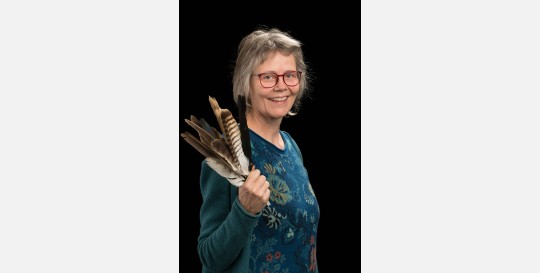Terrestrial Biodiversity Monitoring and Assessment (BIOMON)
Our team is composed of two units, one focusing on the study of terrestrial biodiversity in tropical forest ecosystems and the other dedicated to the long-term monitoring of bird populations.
1. Tropical Forest Biodiversity unit
To create efficient nature conservation strategies, it is necessary to understand how biodiversity is distributed horizontally (between geographically distant sites), vertically (from the tip of the root to the top of the tree), and according to environmental factors (elevation, temperature, humidity, soil, etc.).
Up to half of a forest’s biodiversity lives in the tree tops (canopy). The canopy is difficult to reach as tropical trees can easily grow up to 30 or 40 metres tall. So, we are developing methods for collecting living organisms in the canopy, either from ground level or from the tree tops.
We contribute to biodiversity exploration in regions that are still largely unexplored, by co-organising and collaborating in international expeditions under the IBISCA and Our Planet Reviewed programmes. For example, we participated in the first estimation of the number of insects and other arthropods in a tropical rainforest in Panama. In Papua New Guinea, we are participating in projects combining research, capacity building, sustainable development and nature conservation. Life on Trees, our current large-scale project aims at studying the diversity and distribution of all eukaryotic organisms in large, old tropical trees.
2. Belgian Bird Ringing Centre (BeBirds)
Ringing is a tool for monitoring and studying wild bird populations. The principle of individual marking makes it possible to study migration routes and strategies, population dynamics and changes in vital parameters (birth rates, survival rates, causes of mortality). The continuity of the programme, which began in Belgium in 1927, means that long-term trends can be studied, which is particularly relevant in the context of assessing the state of the environment and the influences of climate change.
BeBirds is committed to :
- organising the collection of high-quality data by a coherent network of certified volunteer ringers;
- make these data available to scientists, professionals and amateurs, managers and decision-makers;
- promoting the development of knowledge by participating in the training of post-graduate students;
- developing its own research programmes focused on nature conservation.


